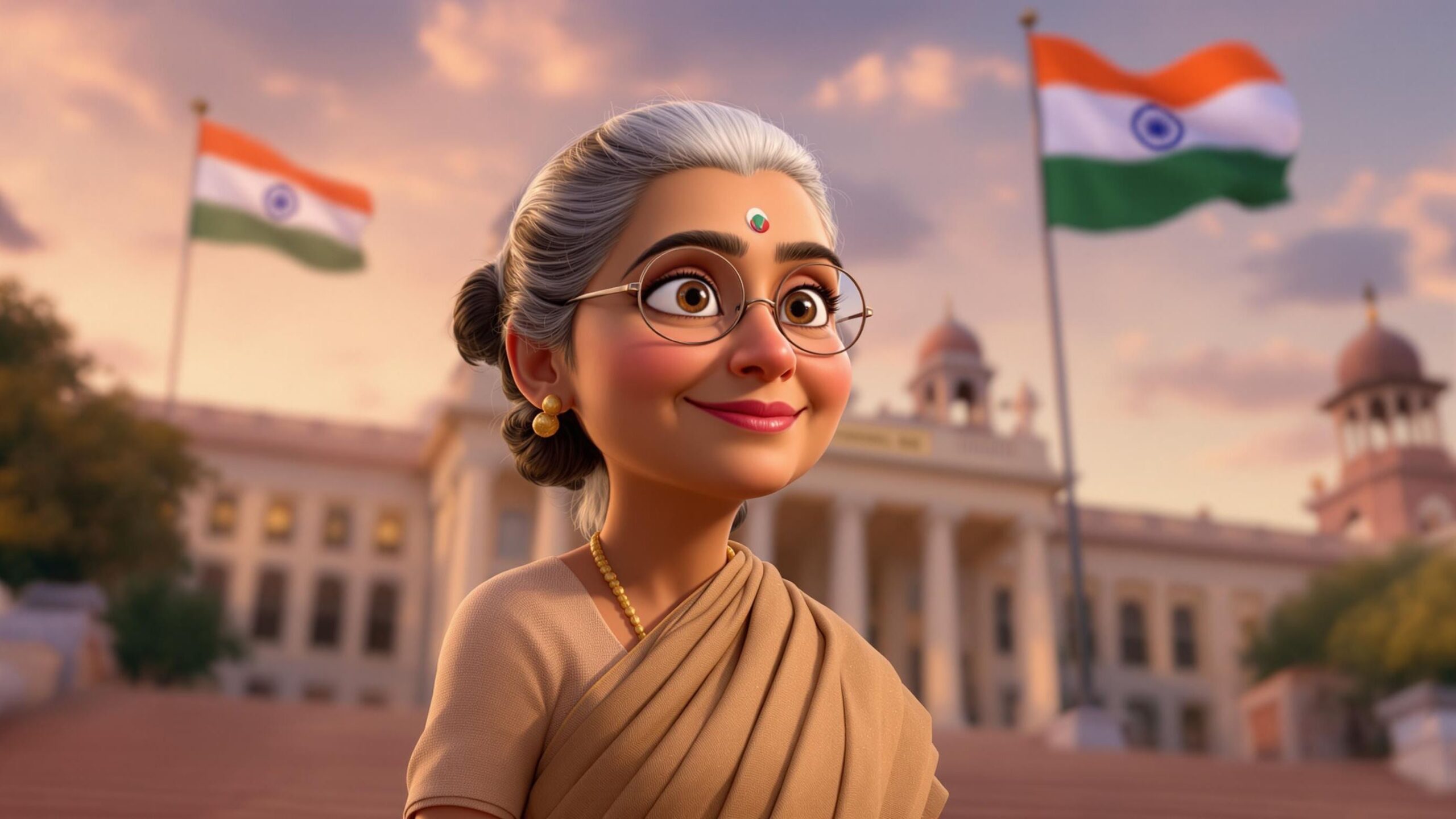The Quiet Powerhouse from East Germany
Before Angela Merkel became the de facto leader of Europe, she was a quiet physicist raised in East Germany behind the Iron Curtain. Reserved, deliberate, and far from flamboyant, she didn’t fit the mold of a traditional political juggernaut. And yet, she rose—slowly, steadily, undeniably—until the world stopped referring to her as just a German Chancellor and started calling her “The Most Powerful Woman in the World.” Merkel didn’t climb her way to the top with fiery speeches or sweeping charisma. She wasn’t flashy, didn’t boast, didn’t chase headlines. What she did possess was rare: an iron will wrapped in soft-spoken calm, a brilliant mind sharpened by science, and a strategic instinct that could outmaneuver even the slickest politicians. When others flinched, she focused. And in doing so, she reshaped not only Germany, but the entire European continent.
The Accidental Politician with a Calculated Plan
Angela Merkel wasn’t born into politics. She earned a doctorate in quantum chemistry and worked in a lab. But when the Berlin Wall fell in 1989, it didn’t just break a nation—it cracked open a path she hadn’t expected. She joined a new democratic movement, and before long, found herself in Helmut Kohl’s cabinet as the Minister for Women and Youth. While other rising stars sought the spotlight, Merkel waited in the wings, learning, watching, outlasting. She was underestimated again and again. But when Kohl’s party, the Christian Democratic Union (CDU), found itself embroiled in a scandal, Merkel did the unthinkable—she publicly broke with her mentor. That move shocked Germany. It also made it clear: Merkel wasn’t just intelligent—she was fearless. That single bold move catapulted her into leadership of the CDU, and by 2005, she became the first woman and first East German to be elected Chancellor. It was no fluke. It was the beginning of an era.
The Iron Chancellor in a Cardigan
Angela Merkel didn’t rule with an iron fist—she ruled with a steel spine in modest suits and calm expressions. Her power wasn’t in showmanship; it was in substance. Her signature style—rational, methodical, and deeply pragmatic—earned her the nickname Mutti, or “Mom,” among Germans. But don’t let the nickname fool you. Merkel was no pushover. She faced down crisis after crisis, and each time, her approach was the same: study the problem, weigh every angle, avoid emotional overreaction, and then act with quiet precision. This “Merkel method” became her trademark—and her secret weapon. Where others might flounder in political chaos, Merkel stayed serene. Where others would chase instant popularity, she played the long game. She wasn’t flashy, but she was formidable. And in an increasingly volatile world, her brand of calm competence made her the rock of Europe.
Steering Through Storms: The 2008 Financial Crisis
When the global economy teetered on the edge in 2008, Merkel didn’t blink. As banks collapsed and nations scrambled, she projected a voice of reason in a storm of panic. She coordinated closely with other European leaders but remained focused on Germany’s economic health. Her insistence on discipline and stability helped Germany weather the crisis better than most. But Merkel wasn’t content to just protect her own country—she emerged as the architect of broader European response. She pushed for bailout packages and financial reforms across the Eurozone, demanding accountability from struggling economies like Greece while holding the bloc together with diplomatic glue. It wasn’t easy. She was called ruthless by some, a savior by others. But one thing was clear: when the crisis hit, it was Merkel who kept Europe from unraveling.
The Refugee Crisis: Compassion with Consequences
In 2015, as war in Syria displaced millions and refugees flooded Europe’s borders, Angela Merkel made one of the boldest and most controversial decisions of her chancellorship: she opened Germany’s doors. “Wir schaffen das,” she declared—we can do this. More than one million refugees entered Germany that year. Critics called it reckless. Supporters called it humanitarian. Either way, it was a defining moment. Merkel’s decision was grounded in morality, not polling. She believed Germany, as a wealthy and free nation, had a responsibility to help. But it came at a political cost—fueling backlash, empowering right-wing populists, and testing Europe’s unity. Still, Merkel didn’t back down. She doubled down on integration efforts and remained steadfast, showing the world that leadership isn’t just about numbers—it’s about values. It was a gamble of the heart, and though the road was rough, it elevated her global standing as a leader of principle.
The Unlikely Leader of the Free World
When the world saw increasing polarization, populism, and political upheaval, Merkel’s consistency stood in stark contrast. As Brexit shook the European Union and Donald Trump shifted the U.S.’s global stance, Merkel was often described as “the new leader of the free world.” It wasn’t a title she sought. But it was one she earned. She defended NATO when others criticized it. She championed climate agreements while others withdrew. She stood up for democratic values, the rule of law, and multilateral cooperation—even as other leaders turned inward. She wasn’t loud. She wasn’t glamorous. But she was steady. And in uncertain times, that made her irreplaceable.
The Scientist Who Trusted Science
When COVID-19 swept the globe in 2020, Merkel once again showed why her brand of leadership mattered. Drawing on her scientific background, she explained the virus and the needed precautions with clarity and honesty. She didn’t sugarcoat. She didn’t dodge. She taught. In one of her most memorable addresses, she calmly detailed how infection chains worked, how exponential growth functioned, and why immediate action was necessary. The German people listened—not because she was commanding, but because she was credible. She leaned on facts, not fear. And though Germany, like all nations, faced challenges, Merkel’s clear-eyed approach set an example for rational, informed governance in a time of panic.
The Legacy of “Merkelism”
What made Merkel so remarkable wasn’t any one decision—it was the accumulation of deliberate, bold, often unpopular choices that defined an entire era. She ruled not by personality but by persistence. She wasn’t driven by ego, but by duty. She didn’t crave the spotlight, but she shone in it anyway. Over 16 years as Chancellor, she became the longest-serving leader in the European Union. She was central to every major European negotiation, summit, and rescue mission. And she did it all while remaining almost defiantly normal. She shopped for groceries without security detail. She rarely raised her voice. She never wrote a memoir during office. She simply did the work. That work created a new definition of power. In a world often drawn to drama, Merkel proved that resilience, intellect, and authenticity could still lead the way.
A Role Model for Women Everywhere
Angela Merkel didn’t kick down doors with speeches about feminism—but she quietly redefined what a female leader could be. She never played to stereotypes. She never made gender her platform. But she broke barriers simply by being herself—competent, composed, and commanding respect. Young women across the world watched her rise and saw a new kind of leadership. One that didn’t demand changing who you are to lead. One that didn’t require theatrics to make impact. Merkel showed that women could lead with intellect, with patience, and with quiet ferocity. She wasn’t just Europe’s first lady of politics—she was a blueprint for women in power everywhere.
The Farewell with Grace
In 2021, after 16 years of leading Germany and influencing Europe, Merkel stepped down. She didn’t seek a dramatic sendoff. She didn’t cling to power. True to form, she bowed out with dignity, humility, and a gentle smile. Her farewell tour was met with applause, admiration, and even tears. Leaders who had sparred with her praised her wisdom. Citizens who had doubted her early on now called her a national treasure. Across the globe, people realized that Merkel’s absence would leave a void—and that her steady presence had been a quiet source of global stability.
The Power of Being Unshakably Yourself
Angela Merkel didn’t roar into the political arena—she walked in, studied the room, waited for the right moment, and then reshaped the conversation. Her rise to the pinnacle of European politics wasn’t fueled by ego, legacy-chasing, or media games. It was driven by something rarer: a relentless focus on getting things right. She didn’t command attention—she earned it. She didn’t seek to dominate—she sought to understand. And in doing so, she became the most powerful woman in Europe not because she demanded the title, but because she deserved it. Her legacy isn’t flashy, but it is foundational. Merkel rebuilt trust in leadership, proved that calm is not weakness, and that deep knowledge is a strength—not a handicap—in politics. She made decisions that mattered, often when it was hardest. She left behind a stronger Europe, a steadier Germany, and a world that’s still figuring out how to replace her brand of leadership. In a political world of noise, she was the signal. And perhaps that’s the greatest power of all.




